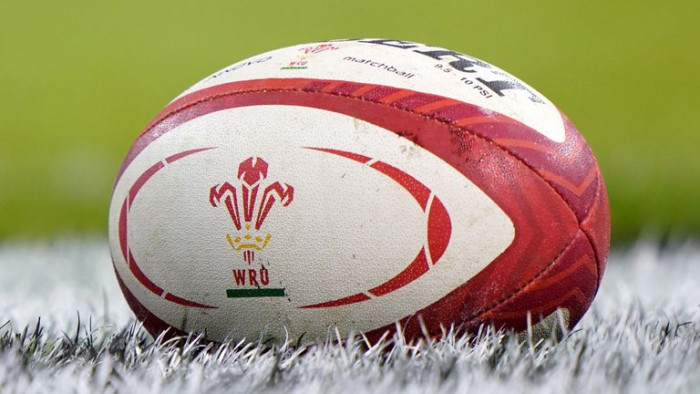Ali Donnelly looks at the challenges facing women in rugby, after a depressing week of news.

It hasn’t been the easiest week for women in rugby.
In Wales, a BBC documentary detailed extraordinary allegations of sexist and deeply inappropriate language, suggesting a culture far removed from a sport with global pretensions.
In Scotland, female players have accused a club of sexism, racism and homophobia after it cut its women’s team, also describing an utterly inappropriate social environment.
While stories like this in the game are undoubtedly decreasing, they are a reminder that deep rooted in rugby is a culture which still often considers women less-than and an environment which easily lends itself to dressing up unacceptable language and intolerant views as banter.
This isn’t everywhere of course, but if you’re a woman who has worked in or around the game, what’s emerged this week really is not much of a surprise – there are few of us I suspect who have not experienced at very least deliberate belittlement - but why?
This isn’t an attempt to explain systemic issues of sexism which sit all around us - often more pronounced in sport– but rather a reminder that there are elements of rugby which arguably make this worse.
Firstly, women were not accepted into the existing structures of rugby until relatively recently. In Wales there was over 100 years between the first men’s test game and the women’s -despite the fact that women were playing in front of huge crowds there during the War years.
As those 100 years progressed an entire system was devised, built and run for and by men.
At every turn, even now, women are forced to adapt to a system which was not developed with them in mind and have to unpick deeply embedded processes and environments which were not set up to welcome them.
When people talk about the challenges of tackling a deep-rooted culture in a sport – that is what they are talking about, a system retrofitting how it works to accommodate women, rather than having included them from the outset.
That is true obviously in most sports, but rugby has been so slow to understand what true gender inclusion looks like at every level, that it often feels miles behind.
That is of course not an excuse for appalling behaviour and vile language, but it is a factor underpinning why it still so often shamelessly exists in our game.
Arguably the very physical nature of rugby too means that old-fashioned views, the likes of which have reduced dramatically for women in sports like football, prevail.
Women have always had to battle to prove that rugby was an acceptable pursuit, with its contact and physical nature having always added an additional barrier to overcome, as evidenced by the fierce resistance that emerged when it first started to get up and running.
Then there is governance, a topic no one really enjoys talking about but one which presents a huge problem to rugby's future.
Almost every challenge facing the game right now can be traced back to governance structures which are not fit for purpose for a modern global sport, representing instead an amateur bygone era, where too often ill-qualified people are tasked with making vital decisions about the game.
It’s why the calls to sack the WRU chief executive this week are understandable, but perhaps misguided.
The problems facing women in the game in Wales are not down to one person at the top of a system, they are down to the system below him seemingly irrevocably designed to make it as hard as possible for women to succeed.
Unless a new chief executive had the power to knock down that entire house of cards and start again (and surely they will not) there is a rather dismal truth we must accept, that the change so many of us want to see will take years.
That doesn’t however mean that progress can’t happen - immediate improvements could of course be made. The WRU could for example publish the bulk of the contents of its secretive report into the Welsh women's game and accept a day of bad news in pursuit of real change.
They could explore genuine and long term changes to their governance model, pointing towards a future where those who make decisions about the game there, better reflect the proud Welsh rugby nation around them.
We could also see authorities offering more action and less platitudes when it comes to women in leadership roles in the game.
The Six Nations today announced its new CEO is to be Tom Harrison, who will join an entirely male board responsible for, among other things, a massive international women’s competition, while World Rugby’s powerful executive committee, still hears the voice of just one woman.
However, it also feels vital to say that, despite all this, there has never been a better time for women in rugby and there is much to cheer.
Professionalism has come to women’s rugby at a pace few of us could ever have envisaged.
Even though it doesn't often feel like it, there are more women in leadership roles than ever before.
Visibility across all facets of the game is only heading in one direction, and there is recognition from the more progressive leaders in rugby that women represent the single most important growth opportunity for the sport.
Those people know too that one day, perhaps even in this decade, women’s rugby will stop costing it and starting making it money, and so they are investing accordingly, just like they did in the earliest days of the men’s game.
Everyone I know who was at the recent World Cup left invigorated and enthused about the future, and it’s possible that Twickenham will host a close around 40,000 fans for a standalone women’s test game in just a few months.
Historical baggage will remain a drag on women being treated as true equals in rugby – but real change and progress is all around us.

